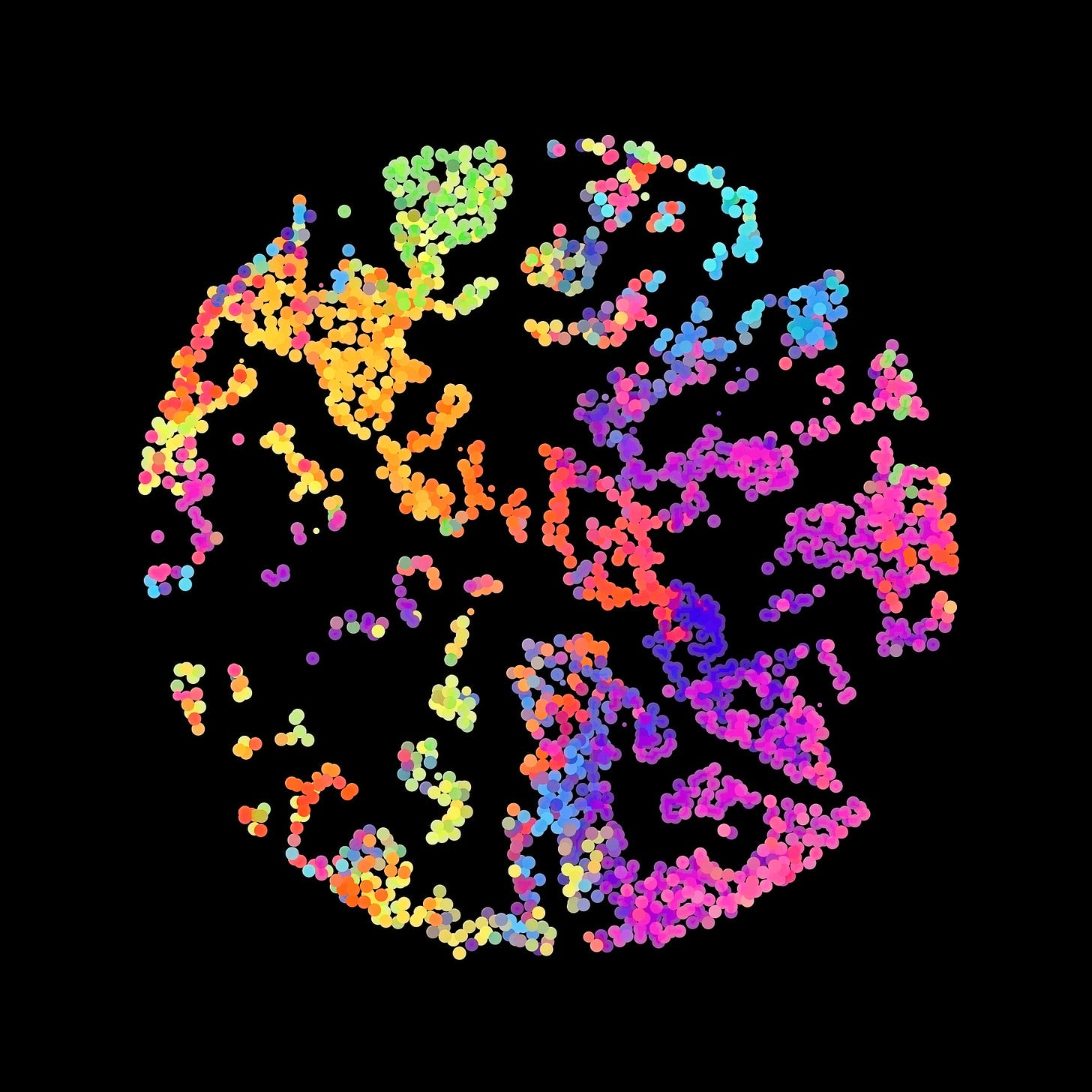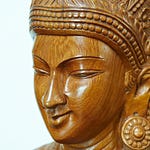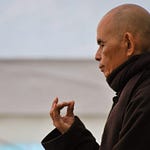Equanimity…is the quality of heart that balances the movement of the heart with wisdom. Equanimity allows us to care, while also owning the limits of that care…. It is not detachment, because our heart is still engaged. We learn to take wise action when appropriate, and we let go of attachment to outcomes. —The Tattooed Buddha
Inspired by my dharma siblings, with whom I sit for an hour every morning via Zoom, I wrote and recorded a meditation to help us all balance our empathy with our equanimity during these troubled times. No matter how comfortable our individual lives may be, we can’t help feeling the pain of the world’s violence, searing divisiveness, and catastrophic environmental events.
The lands considered holy by Abrahamic religions are engulfed in technologically frightening warfare on the verge of spreading. In Nepal—with its deep significance to Buddhists and Hindus—hundreds have died in flash floods this week and earlier this year during a period of severe monsoons. Communication has not yet been fully restored, so the effects of the recent flooding remain to be determined, but Nepal is disproportionately vulnerable to climate change.
In the United States, which also has seen unprecedented flooding in the past week, the closely divided and widely separated electorate is nearing an election that could be pivotal for the world as well as the nation. It continues to struggle with an influx of refugees at its southern border, fleeing political and environmental instability.
Political and environmental instability is also driving would-be immigrants toward Europe, where political systems are being strained, and war continues between Russia and Ukraine.
We know that the world has recovered from devastation before. From 1939 to 1945, the Second World War resulted in up to 85 million fatalities, more than 50 million of them civilians. Tens of millions were dislocated and forced to find new homes. From 1347 to 1351, the bubonic plague is estimated to have cost Europe and China half of their population and the Middle East a third. The resulting disruptions lasted decades.
Still, in times like we’re living through, some of us experience empathy fatigue—running out of emotion—while others, known as empaths, can’t stop feeling the pain of others. Both extremes might consider the difference between empathy and compassion. We need to keep hold of our compassion—our deep desire to help—while limiting our emotional absorption of others’ pain.
Our emotional and tangible resources are limited, so we aim to train our minds to focus on what we can do, not everything that should be done.
So, you can find a comfortable place to meditate in whatever position you prefer.
[Ring bell]
You’d like your back straight-ish so air can flow easily in and out. If you’re seated, your hands may rest on your thighs or knees. If you’re in a chair, you might rest both feet on the floor or ground, or on a cushion. Your eyes may be open or closed. If they’re open, avoid squinting or focusing on anything in particular.
You scan your body for areas of tension, and when you’re ready, you rest in your awareness of breathing.
You might follow your breathing, starting with the air as it’s about to enter your nose. You sense the movement of the air and its temperature. Then you might follow the air down into your lungs, where perhaps you can note a temperature change, and then back out through your mouth.
As you exhale, you might make a sound like Ahhhhhhhh…
Each exhalation brings you deeper into relaxation. That’s not something you do. It’s something you allow.
Breathe naturally in awareness for a while. When your mind wanders, just gently return to awareness of breath.
[Pause]
Now, if your eyes are open, you might close them gently as you imagine yourself on a plateau on a mountainside with a seemingly endless view before you.
A figure emerges from the warm glow of the sun. It represents love, compassion, and wisdom. It might be a human or other life form—alive or having left this realm. It might be a deity or an imaginary being. Whatever you choose as your representation of love, compassion, and wisdom, I’d like you to visualize it before you.
You might allow that image to dissolve into light and absorb it into yourself, merging your love, compassion, and wisdom with its. I’ll give you time to rest in awareness with your merged love, compassion, and wisdom.
[Pause]
Now, in your mind, look out over the vast landscape before you. It seems to go on forever. You recognize you are interconnected with all of it but limited in your control over even a tiny part of it.
In your wisdom, you know now that you can spread your love and compassion over the entire landscape. You can add your loving-kindness to the interconnected web that unites all of it. But you can have a more direct impact on only the area around you.
[Pause]
[Ring bell]
We’ll close with:
From the Pure Land has subscribers in 28 U.S. States and ten countries. The podcast has listeners in 22 countries. Consider:
Becoming a subscriber if you are not one already. Free and paid subscribers receive the same content, but subscribing for $5 a month or $50 a year helps support my mission.
Making a one-time donation of any amount.
Sharing this post with a friend.













